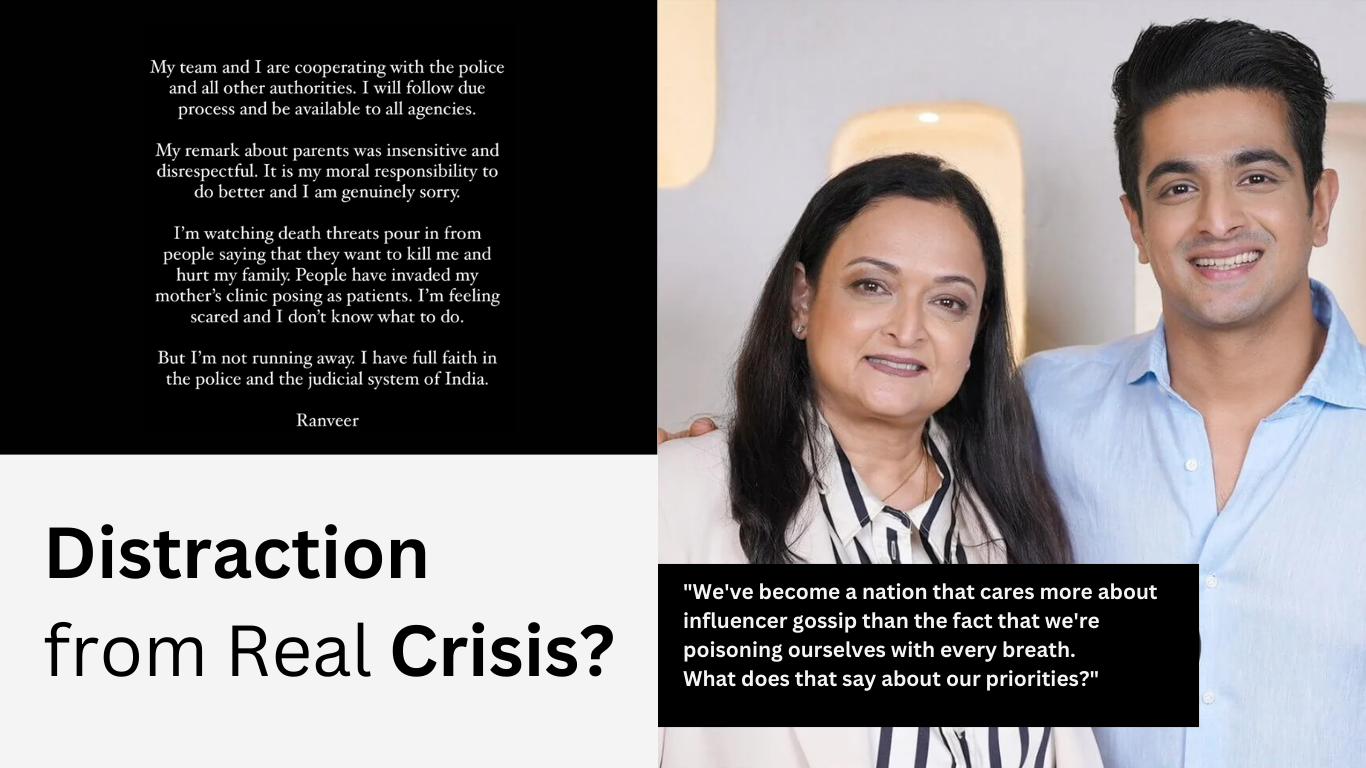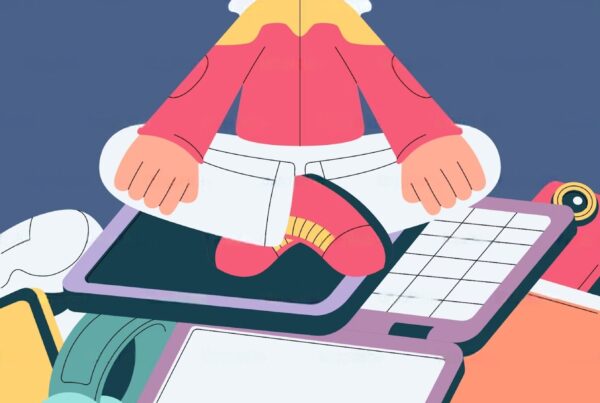
“I am watching death threats pour in from people saying that they want to kill me and hurt my family,” said Ranveer Allahbadia, sharing the terrifying reality of being at the center of online outrage. He revealed that some individuals even attempted to “invade” his mother’s clinic, posing as patients. “I am feeling scared and I don’t know what to do… But I am not running away. I have full faith in the police and the judicial system of India,” he added.
The online frenzy surrounding Allahbadia has generated millions of views, thousands of comments, and countless hot takes, escalating to the point of personal attacks and threats. Blogs, vlogs, and countless social media posts have dissected every detail of this controversy, ensuring it remains the nation’s trending topic. Meanwhile, Bryan Johnson, who walked out of a podcast affected by India’s severe air quality issues despite the presence of air filters, barely made a ripple in the news cycle.
Thousand of blogs, memes, and heated debates were churned out in reaction to Allahbadia’s controversy, with people passionately arguing over the episode. But when it comes to India’s worsening environmental issues—climate change, air quality, and water pollution—not a fraction of the same public energy or digital rage is directed toward holding those in power accountable. No one, to date, has sent threats to the people responsible for contributing to climate change, nor has the discourse shifted to address real, pressing environmental challenges.
Air Purifiers Can’t Save Your Lungs Anymore

Bryan Johnson, known for his $2 million yearly investment in extending his lifespan, made headlines when he walked out of Nikhil Kamath’s podcast. “I respect the invitation, but I can’t compromise on health fundamentals,” Johnson reportedly said after his air quality monitor showed alarming readings, making it hard for him to breathe.
What’s fascinating is that the room was equipped with high-end air purifiers. Let that sink in: multiple devices designed to clean the air couldn’t make the environment safe enough for someone who prioritises health.
We’re so used to breathing polluted air that it’s become the norm. It’s only when someone from outside points it out that we have a moment of “oh, right.”- anonymous govt source
India’s Deadly Air Crisis
Let’s Cut the BS, here are some facts:
- According to IQAir’s 2023 World Air Quality Report, 14 of the world’s 20 most polluted cities are in India
- The WHO estimates that air pollution kills over 1.7 million Indians annually
- Economic losses from air pollution in India amount to approximately $150 billion yearly, according to a Lancet study
- Indoor air pollution in urban Indian homes can be 2-5x worse than outdoor air, per a 2022 TERI study
“These aren’t just statistics—they’re death sentences,” says Dr. Avinash Sharma, pulmonologist at Apollo Hospitals. “While we’re debating influencer controversies, people are developing chronic respiratory conditions that will plague them for life.”
Distraction from the Real Crisis?

Ranveer Allahbadia via Instagram
The online rage around Allahbadia has generated millions of views, thousands of comments, and endless hot takes to even Death Threats, as said by Ranveer on his Instagram Story. Meanwhile, Johnson’s environmental stand barely registered in the news cycle. Thousand of Blogs were written addressing India’s Got Latent Controversy, and people personally showed rage online but no one even cared to write about Climate Change!
Environmental activist Sunita Narain puts it bluntly: “We’ve become a nation that cares more about influencer gossip than the fact that we’re poisoning ourselves with every breath. What does that say about our priorities?”
“But It’s Just How India Is”

The most troubling response to Johnson’s exit has been the normalization of India’s pollution crisis. Social media comments like “he should have known what he was getting into” or “that’s just how it is here” reveal a dangerous acceptance of an urgent crisis.
“This fatalistic attitude is killing us,” warns environmental engineer Rajiv Mishra. “Other countries have cleaned up their air—Los Angeles and London were once terribly polluted. But they took action instead of accepting it as inevitable.
Beyond Outrage: What Can Actually Be Done?
The solutions aren’t new, they have just been ignored:
- Stricter enforcement of existing environmental regulations
- Public transportation investment to reduce vehicle emissions
- Clean energy transition away from coal power plants
- Agricultural reform to reduce crop burning
- Public awareness campaigns to drive behavioral change
“We know what to do,” says former Environment Minister Jairam Ramesh. “What we lack is the political will and public demand to make it happen.”
Clickbait to Clean Air
The energy spent on influencer drama could power real change if channeled toward environmental action. Our Writers had to clickbait you with the title to get your attention. The next time your timeline fills with influencer controversy, consider this: that same attention, directed at air quality, could help save those 1.7 million lives lost annually.
“Algorithms feed us what engages us” notes digital sociologist Priya Kumari
“If we engaged with air quality issues the way we do with influencer drama, we’d see more coverage, more pressure, and ultimately, more action.”
Join the Vision community today and gain exclusive access to our services—free for a limited time. Together, we can create a future where our choices don’t hurt the planet!


